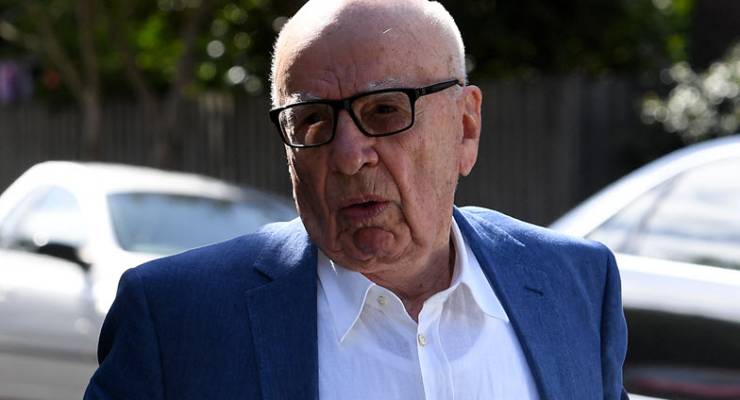
Are we so inured to expectations that the Murdochs will get their way any time they need governments to shape regulation to suit their interests that we may be missing a sea change? Maybe we should be recognising that monopolies just aren’t what they used to be.
Right now, Rupert and Lachlan are waiting for the Australian parliament to agree to the Turnbull government’s proposal to abolish the Howard government’s two out of three rule to allow one of the Murdochs or one of their companies to take over the Ten Network.
At the same time, Rupert and James are trying to win British political and regulatory approval for 21st Century Fox to take over the majority share of Sky. (It currently owns 39%). Sky is mainly a UK pay TV broadcaster with holdings in Italy and Germany, giving it a largely pan-European footprint.
These are important strategic plays for the family. Ten would give the family a free to air vehicle to accompany and strengthen Foxtel. Full ownership of Sky would give the family access to all the company’s strong revenue flows.
Because we’re used to the idea that the Murdochs always get their way with governments, there is an expectation that they’ll get their way this time too. Certainly, the British market has priced the probability of the takeover into Sky’s share price, although this could reflect the current mania for merge-arbitrage as much as any actual knowledge of the situation.
Business management theorists talk a lot about the “core competencies” of corporations — a sort of managerialese for “stick to your knitting”. One of News Corp’s core competencies has been knitting its operations through a heavily regulated and politicised industry, or “media” as we call it. They rely on the political clout of their entities to shift the agenda in their direction.
This is why watching News Corp is its own spectator sport. It’s like following one of the giants of World Series of Poker at work. There’s an entire corps of commentators, looking over their shoulder, analysing their bids, calling their bluffs, explaining their tells.
The biggest News Corp bluff is: whatever they want, they get. Matched with: governments will always fall into line out of expectations of positive coverage or fear of negative reporting. The continued success of the bluff depends on past and present success. So, the company trumpets their wins, while gently air-brushing their losses from history (*cough* China *cough*).
The media monopolists have the added advantage of shaping how the community perceives this game. Or, perhaps I should say “had”. Media monopolies just aren’t as monopolistic as they once were. Now they’re just one voice among social media, new digital players and global competitors. Worse, the new channels democratise media by allowing people to organise and to push back, to call the bluff while the cards are still on the table.
Ten’s receivership was expected to give the Australian parliament a bit of a hurry up. But there’s little sign of that happening. Sure, the package of changes has passed through the House of Representatives, but it’s another five weeks until the Senate sits again and with little indication that there is an appetite in a majority of senators for change, particularly given the opposition of Labor and the Greens.
Perhaps an indicator of the government’s lack of confidence was the announcement by Communications Minister Mitch Fifield to administratively expedite the major goal of the free to air networks from the government’s package — the waiving of licence fees. Coincidentally, this will improve the operating position of the Ten network, which administrators KordaMentha have already said is cash-flow positive. Now it will be more so.
It’s unlikely the Senate will act within a time frame that suits the resolution of the messy Ten situation.
Meanwhile, in the UK last week, Theresa May’s Culture Secretary Karen Bradley advised parliament that she has postponed a decision on the Sky takeover pending advice from the Competition and Markets Authority. This followed the report from the media regulator Ofcom which concluded: “The proposed transaction would give the Murdoch family trust material influence over news providers with a significant presence on television, radio, printed newspapers and online.”
Unlike the past, Bradley — and the Australian Senate — now have to think about more than those rich enough to get a seat at the table. They need to take into account the crowds that social media has let into the once private gaming rooms. They have to pay attention to their chiaking of the players.
That made the UK election, in part at least, a referendum on the Tory tabloids. Sure, like the Brexit vote, the result was just an expression of opinion. But it’s an opinion that governments and regulators now need to take into account.







Long may they wait. Long may they be unsuccessful.
We can but hope that the mudorc menagerie is in decline. The mystery is that so many were for so long englamoured by it – despite its long proven turpitude, betrayals and duplicity.
Must be the same ‘sunk cost’ mentality that afflicts gamblers & the religious, reality is no bulwark.